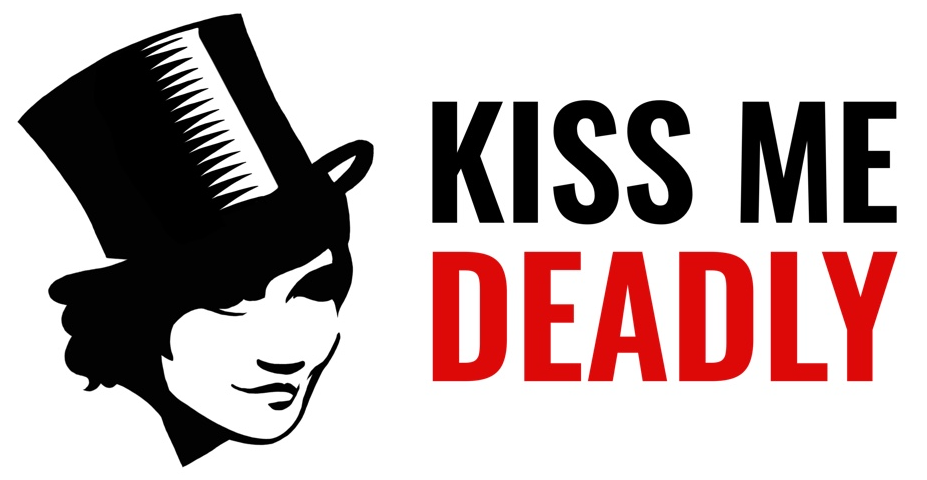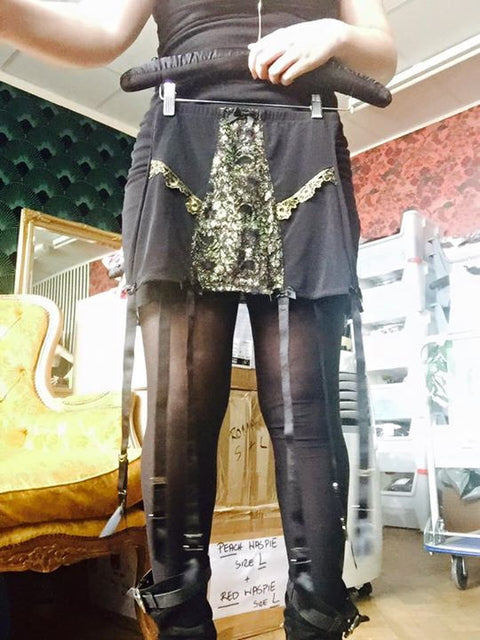Behind the scenes, Lydia and I are spending considerable time on our next Kickstarter, and having some odd conversations as a result. After a workshop at Soho House she said "they reckon that if you kickstart it means investors spot you, the woman there said she'd been approached since she kickstarted, so maybe that will happen to us?" and I said I seriously doubted it.

I could be being cynical, but I think most investors are going to get put off by my disabilities - and Kaleidoscope agree, saying that research shows that many investors do not feel confident about a persons capabilities even if the business idea of a disabled person may be interesting and profitable. Bonus points to anyone who can send me published peer reviewed evidence!
That's because investors are usually looking at margins, turnover and rapidity of growth. I've never run a business while I've been healthy - I started KMD about 8 years ago, but this year "celebrated" my 10 year sickiversary - so I can't directly compare, but here's just a few of the things I'm aware of that cause problems with my disabilities* (see footnote for details!) and the business.
1) I can't get to the post office. I know this sounds really stupid, but can you imagine all the times we need to just pop something in the post, paperwork, bits of elastic, samples? Anyway, they've closed all the local ones and the nearest is now a 40 minute round trip (without the time spent queueing and doing the post) even for a healthy mobile tall person. For me? Well, on some days I could probably do it, bit it'd wipe me out for a day, maybe two. The subsequent logistical tangles take up time, energy and occasionally cash that we'd all rather got spent on products or marketing. There's a host of niggly issues like this that I suspect I'd run up against with investors expectations.
2) Everyone assumes working from home is great, but actually, I LOVE being in offices. I like being around people, ALL THE TIME, I'm an extrovert who grew up in a crowded home and then worked in the care industry. My M.E is an introvert. Consider the sloth; a solitary creature that hangs out in its tree, only coming down when it really has to. That's basically what happens when you have M.E.
Which means I work from home, and try not to go totally demented from the subsequent social isolation. But what investor looks at a business that HAS to be run from my home and thinks "yeah, that sounds like it could get huge!".
It can actually be done - one of my favourite tech start-ups is pretty much entirely done by people working from their homes - but it's not what people expect.

3) I save on office costs, but in other ways I'm expensive. I can either use public transport, OR arrive at my meetings in a fit state to talk, but not both (if this doesn't make sense, think about what it's like when you've had flu, a hangover, or were pregnant; or try this chronic illness game if NONE of those have ever happened to you). So, my transport bill is pretty bonkers. I need special food, and special physio every few weeks. I use an office chair that costs thousands because normal ones induce the most incapacitating shooting pains after a while. I'm basically murder on the profit margins!
4) My insurance is insane, or impossible. Most small brands won't function without their founder so it's common to have life insurance. Keyman insurance and the like, offsetting the risk of investing in us. Last time I asked for it (which was admittedly a very long time ago), I couldn't get it - I was actually told "the computer doesn't know what your illnesses are so we can't help". I can't imagine it'd be different now - if anything I've been diagnosed with more stuff, and haemophilia-type disorders especially seem to set off whooping alarums at financial institutions!
5) People tend to start their businesses by just throwing every hour they've got at it, and then when they have a rapid growth patch, doing that again to get over the hump, so to speak. I can't do that now, though it was my natural tendency before illness; I was one of those that would meander all over the place and then write my essays at 1am the day they were due in. This worries people, because our notion that rewards come from working hard is so ingrained (even though it's basically wrong).
Day to day, I cope by working round things. Trying to value working smarter, not harder. Trying to remember that even feeling like I'm running on half-power, I've managed to keep a business afloat longer than most (hell, longer than some multi-millionaire celebs. Go on, see if you can work out who I mean!). Trying to remember that plenty of people have special needs - I'm pretty certain that Karolina Laskowska's lace addiction issue counts, and if you have a kid, well, expect a host of extra costs to your small businesses (and yes, women and mothers also face extra issues finding investors). Still, I'm painfully aware at times that conventional investment would have some issues us, even if we put down the knives!

So I guess if kickstarting works, see you all at Crowdcube in a while? ;)
*I should probably mention, for people who are new to this, that I have M/E/C.F.S, Von Willebrands Type 1, Lichen Sclerosus and Vulvodynia, and a few other things. What that means is that I have a very limited amount of energy, there's some stuff I just can't do, I'm in lots of pain, I have problems with all sorts of strange stuff like skin sensitivities, I have deficits in my memory and thinking, and I bruise and bleed too easily.


